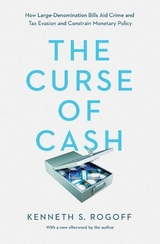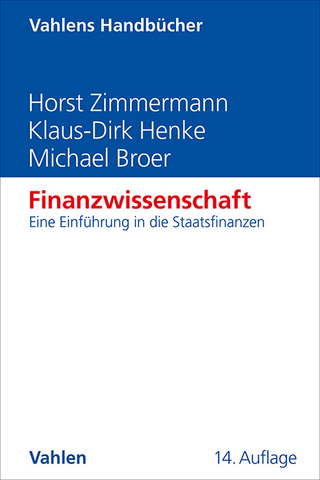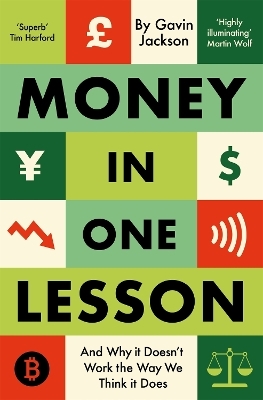
The Curse of Cash
Princeton University Press (Verlag)
978-0-691-17213-2 (ISBN)
- Lieferbar
- Versandkostenfrei
- Auch auf Rechnung
- Artikel merken
From the New York Times bestselling author of This Time Is Different, "a fascinating and important book" (Ben Bernanke) about phasing out most paper money to fight crime and tax evasion--and to battle financial crises by tapping the power of negative interest rates The world is drowning in cash--and it's making us poorer and less safe. In The Curse of Cash, Kenneth Rogoff, one of the world's leading economists, makes a persuasive and fascinating case for an idea that until recently would have seemed outlandish: getting rid of most paper money. Even as people in advanced economies are using less paper money, there is more cash in circulation--a record $1.4 trillion in U.S. dollars alone, or $4,200 for every American, mostly in $100 bills. And the United States is hardly exceptional. So what is all that cash being used for? The answer is simple: a large part is feeding tax evasion, corruption, terrorism, the drug trade, human trafficking, and the rest of a massive global underground economy. As Rogoff shows, paper money can also cripple monetary policy.
In the aftermath of the recent financial crisis, central banks have been unable to stimulate growth and inflation by cutting interest rates significantly below zero for fear that it would drive investors to abandon treasury bills and stockpile cash. This constraint has paralyzed monetary policy in virtually every advanced economy, and is likely to be a recurring problem in the future. The Curse of Cash offers a plan for phasing out most paper money--while leaving small-denomination bills and coins in circulation indefinitely--and addresses the issues the transition will pose, ranging from fears about privacy and price stability to the need to provide subsidized debit cards for the poor. While phasing out the bulk of paper money will hardly solve the world's problems, it would be a significant step toward addressing a surprising number of very big ones. Provocative, engaging, and backed by compelling original arguments and evidence, The Curse of Cash is certain to spark widespread debate.
Kenneth S. Rogoff, the Thomas D. Cabot Professor of Public Policy at Harvard University and former chief economist of the International Monetary Fund, is the coauthor of the New York Times bestseller This Time Is Different: Eight Centuries of Financial Folly (Princeton).
Preface ix Chapter 1: Introduction and Overview 1 PART I: The Dark Side of Paper Currency: Tax and Regulatory Evasion, Crime, and Security Issues Chapter 2: The Early Development of Coins and Paper Currency 15 Chapter 3: Size and Composition of Global Currency Supplies, and the Share Held Abroad 31 Chapter 4: Holdings of Currency in the Domestic, Legal, Tax-Paying Economy 48 Chapter 5: Currency Demand in the Underground Economy 58 Chapter 6: Seigniorage 80 Chapter 7: A Plan for Phasing Out Most Paper Currency 92 PART II: Negative Interest Rates Chapter 8: The Cost of the Zero Bound Constraint 119 Chapter 9: Higher Inflation Targets, Nominal GDP, Escape Clauses, and Fiscal Policy 147 Chapter 10: Other Paths to Negative Interest Rates 158 Chapter 11: Other Possible Downsides to Negative Nominal Policy Rates 175 Chapter 12: Negative Interest Rates as a Violation of Trust and a Step Away from Rule-Based Systems 182 PART III: International Dimensions and Digital Currencies Chapter 13: International Dimensions to Phasing Out Paper Currency 199 Chapter 14: Digital Currencies and Gold 208 Final Thoughts 217 Acknowledgments 221 Appendix 225 Notes 233 References 257 Index 273
| Erscheinungsdatum | 23.08.2016 |
|---|---|
| Zusatzinfo | 30 line illus. |
| Verlagsort | New Jersey |
| Sprache | englisch |
| Maße | 152 x 235 mm |
| Gewicht | 539 g |
| Themenwelt | Wirtschaft ► Volkswirtschaftslehre ► Finanzwissenschaft |
| ISBN-10 | 0-691-17213-7 / 0691172137 |
| ISBN-13 | 978-0-691-17213-2 / 9780691172132 |
| Zustand | Neuware |
| Informationen gemäß Produktsicherheitsverordnung (GPSR) | |
| Haben Sie eine Frage zum Produkt? |
aus dem Bereich



